The United Nations has said reports of a gas, believed to be chlorine, being dropped on the Syrian city of Aleppo are being investigated.
UN Special Envoy for Syria Staffan de Mistura said: "There is a lot of evidence that it actually did take place", adding that if confirmed the attack would amount to a war crime.
The Russian defence ministry has said seven people died in an attack by Syrian rebels in the city using weapons loaded with a "poisonous agent".
Lieutenant-General Sergei Chvarkov, the head of Russia's reconciliation centre in Syria, said that "as a result of this terrorist attack, seven people died and 23 were evacuated to hospitals in Aleppo with breathing problems and airway burns".
The Syrian Observatory for Human Rights put the toll from the rocket attack at six dead, saying the casualties were soldiers.
Speaking to AFP, Observatory director Rami Abdel Rahman could not confirm that any kind of gas had in fact been used.
The Russian claim came a day after the Observatory reported 24 people suffered breathing difficulties in rebel-held Saraqeb, a town 50km south of Aleppo, after a barrel bomb attack.
Residents said chlorine gas had been used in the attack, but the monitor could not confirm this.
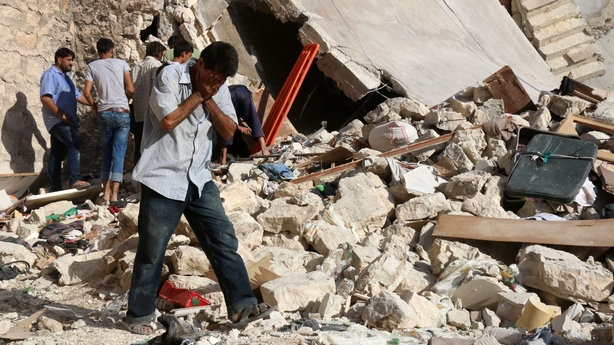
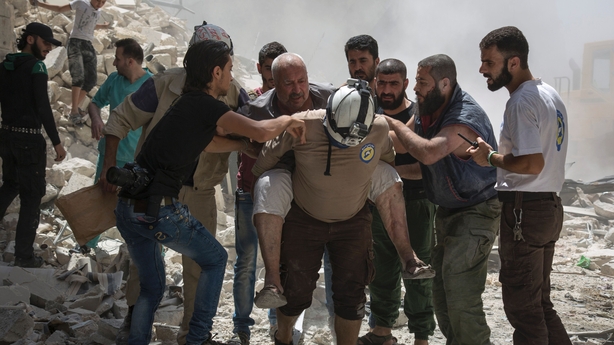
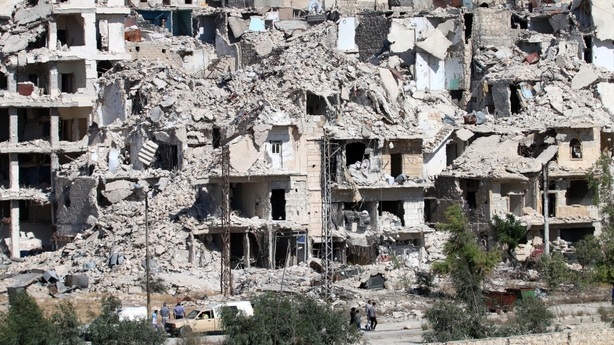
The UN also said it was trying to arrange with Russia a "workable humanitarian pause" in fighting in Aleppo, warning time was running out for up to two million trapped civilians.
Russia said yesterday there would be daily three-hour ceasefires in Aleppo starting today to allow humanitarian convoys to enter the city safely, a proposal which the UN mediator said was "not enough".
UN humanitarian adviser Jan Egeland said that a 48-hour pause was required to ensure safe deliveries
He added: "What is the new and positive thing today is that the Russian Federation said they would like to sit down with us and the other co-chair (the United States) to discuss how the UN proposal could be implemented.
"We are hopeful that will lead to something."
UN humanitarian chief Stephen O'Brien said the organisation is open to any proposal on providing humanitarian aid but the co-ordination must be carried out in a neutral, impartial fashion.
"However the access is made available ... we are absolutely neutral, independent and impartial, it is not possible for us to work in tandem with or in partnership with a military force, or with that kind of activity", Mr O'Brien said.
"In the end the UN has to be in charge of delivering according to principles," he said.
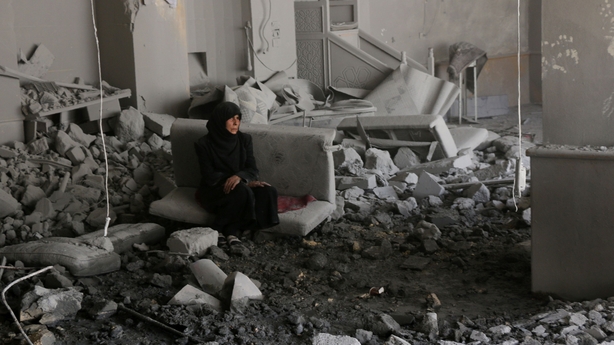
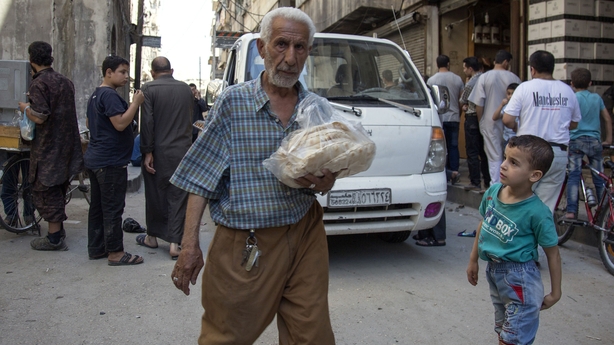
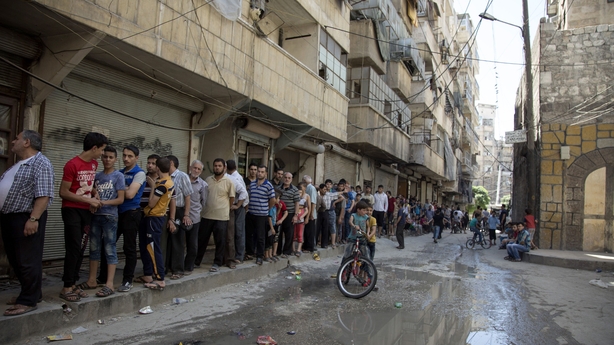
Rebel successes complicate strategies of Assad and Russia
In breaking a Syrian government siege on opposition-held areas of Aleppo, insurgents have setback President Bashar al-Assad's hopes of using Russian air power to reclaim a vital city and speed the end of the five-year conflict.
The sudden advance by fighters from western Syria into a military complex in southwest Aleppo on Saturday opened a corridor into the city, breaking the weeks-long siege and providing a launch pad for fresh attacks into government-held territory.
Whether they can hold, or even consolidate, their gains in a war marked by fluctuating fortunes is unclear, but the insurgents' success showed they are capable of checking the momentum that Russia's air campaign has given Assad in recent months.
In Aleppo the disparate groups fighting the Syrian government army demonstrated a rare unity, while also dealing a blow to Assad, Moscow and their Iran-backed allies who have invested heavily in a victory in what was the country's most populous city before the war.
Aleppo is important not only because of its size but also for its location near Turkey, a powerful supporter of anti-Assad groups operating it the city. In addition, its rebel-held areas are the main stronghold of most opposition groups apart from the jihadists of so-called Islamic State.
The defeat of the Aleppo insurgents could have been seen in Damascus and Moscow as a precursor to the collapse of the armed rebellion against President Assad's rule.
Government media have declared the fighting as "the mother of all battles", while Mr Assad's ally in the war, the Lebanese Hezbollah movement, has called it "an existential struggle".
For their part, the rebels speak of an "epic battle to liberate Aleppo", rallying support by citing the plight of trapped civilians in the city being pummelled by air strikes that have regularly hit hospitals and market places.
With the insurgents now saying they are preparing to assault western Aleppo, so far spared the devastating aerial bombardment of rebel-held districts, a yet more protracted and bloody battle is in prospect, rebels, government sources and diplomats say.
In eastern Aleppo, communities moved en masse from front-line zones to other parts of the city, a pattern that might now be repeated in the government-held west, residents say.
The rebels regard their success as evidence they can turn the tables even in the face of Russian might, and that their goal of toppling Mr Assad is no longer far-fetched.

